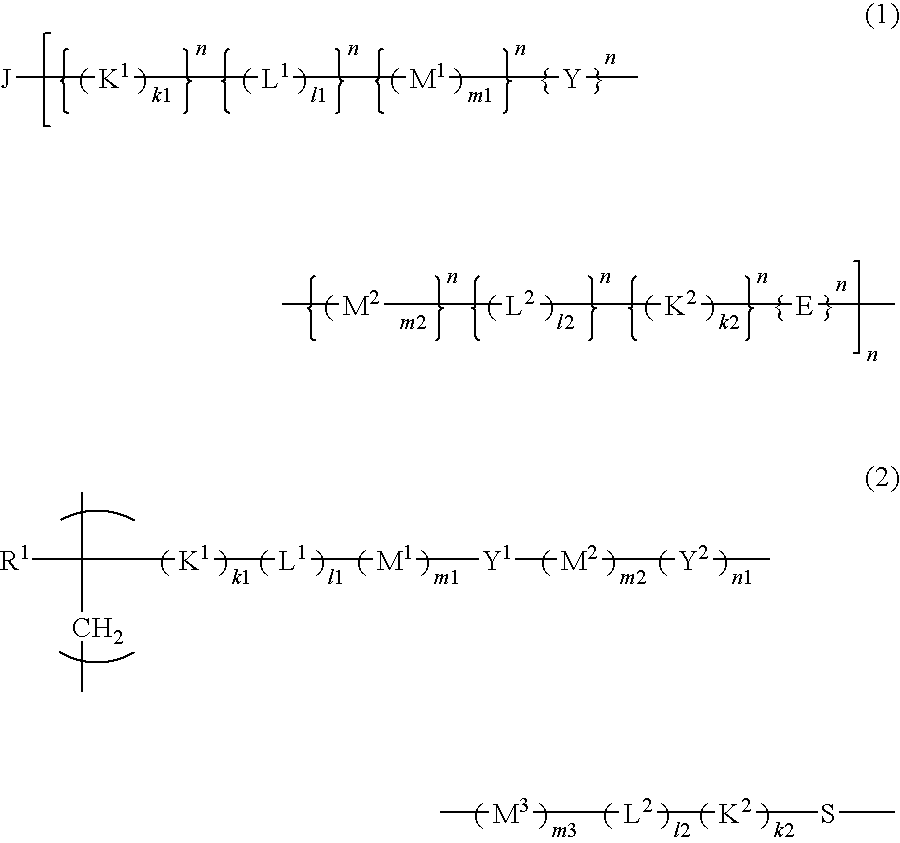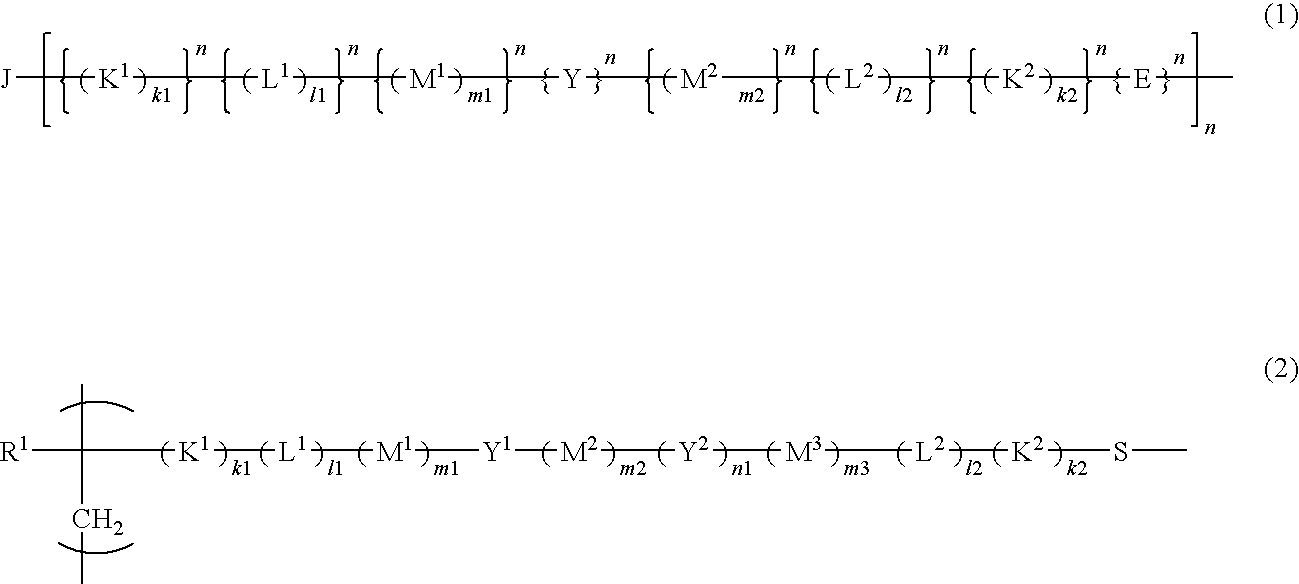Resist polymer, resist composition, process for pattern formation, and starting compounds for production of the resist polymer
a technology of resist polymer and composition, which is applied in the direction of halogenated hydrocarbon preparation, basic electric elements, electric apparatus, etc., can solve the problems of inability to use arf excimer laser lithography, large line edge roughness, and so on. , to achieve the effect of suppressing the production of defects, small line edge roughness, and improving solubility
- Summary
- Abstract
- Description
- Claims
- Application Information
AI Technical Summary
Benefits of technology
Problems solved by technology
Method used
Image
Examples
decomposition example 1
[0068]
decomposition example 2
[0069]
decomposition example 3
[0070]
[0071]The resist polymer of the present invention may contain, as a structural unit, a unit having an acid-eliminable group other than the acid-decomposable unit and the unit having a hydrophilic group.
[0072]The structural unit having an acid-eliminable group preferably includes at least one selected from the group consisting of the following formulas (29-1) to (29-8) in terms of its high dry-etching resistance required for resists.
[0073]In formulas, R31, R32, R33, R34, R35, R36, R37 and R38 each represent a hydrogen atom or a methyl group; R29, R292, R293, R294 and R295 each represent an alkyl group having 1 to 3 carbon atoms; X1, X2, X3, X4, X5 and X6 each represent a linear or branched alkyl group having 1 to 6 carbon atoms; n1, n2, n3, n4, n5 and n6 each represent an integer of 0 to 4, wherein when n1, n2, n3, n4, n5 or n6 is 2 or more, a plurality of different groups may be contained as X1, X2, X3, X4, X5 or X6, respectively; R331, R332, R333, R334, R351, R352, R353, R354...
PUM
 Login to View More
Login to View More Abstract
Description
Claims
Application Information
 Login to View More
Login to View More - R&D
- Intellectual Property
- Life Sciences
- Materials
- Tech Scout
- Unparalleled Data Quality
- Higher Quality Content
- 60% Fewer Hallucinations
Browse by: Latest US Patents, China's latest patents, Technical Efficacy Thesaurus, Application Domain, Technology Topic, Popular Technical Reports.
© 2025 PatSnap. All rights reserved.Legal|Privacy policy|Modern Slavery Act Transparency Statement|Sitemap|About US| Contact US: help@patsnap.com



